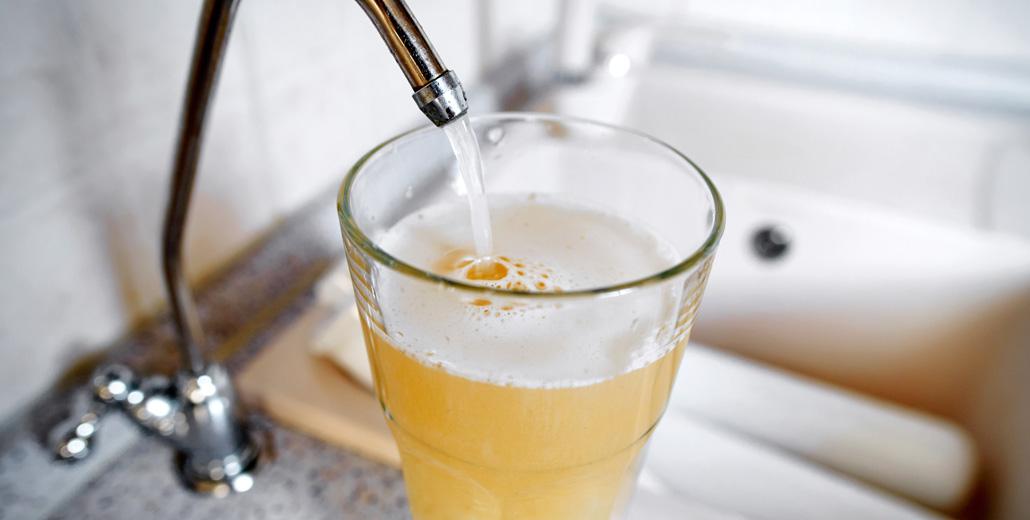
There are few things more discouraging than turning on the faucet and filling your drinking glass up with brackish, rusty-looking water. It’s not just gross; it’s also a sign that you’re probably going to have to fix something. But what causes rusty water?
Knowing what is causing your rusty water is the first step to fixing it. Is it something that will just go away on its own?
Is Rusty Water Safe?
The rust is probably safe, but it’s possible that there are other contaminants in your water, as well. So, it’s a bad idea to drink rusty water.
Bacteria and other impurities get caught in corroded sections of the pipes and can then enter your water. If your water becomes rusty, these other contaminants may also be present.
Bathing in rusty water is not advised, as it can damage your skin and leave it feeling itchy and dry. Rusty water can also stain your clothing, so it’s a bad idea to wash your clothing with it.
Where Do You Find Rusty Water?
The first step in identifying what’s causing the rusty water is to see which taps in your house are delivering it. Start by checking all the faucets in your home for discolored water.
Coldwater settings
Check your faucets on cold water only. If you get rusty water from the cold-water line, it’s likely corrosion in the supply line.
The interior of old galvanized steel water supply pipes often corrodes and rust. Sometimes, this buildup ends up in your water spigot.
If this is the case, you may need to have your old pipes replaced by a professional plumber.
Hot water settings
If you’re getting rust and discoloration only with hot water, there’s a good chance it’s coming from your water heater.
Water heaters collect sediment at the bottom, and when this layer is disturbed, it becomes loose. This loose rust ends up getting circulated with the rest of the hot water in the tank.
Make sure you follow the manufacturer's maintenance guidelines and have your water heater flushed regularly.
Rusty water on all settings
If you’re getting brown, rusty water on both cold and hot settings and from all of your taps, it may be your public water supply. Frequently, maintenance or repairs on municipal water supply lines stir up debris that makes its way to customers’ sinks.
Contact your provider to report the problem. If there is work being done on your main supply line, make sure you run all your faucets to clear out any remaining sediment in the lines once complete.
Emergency Action
The rust in your cold water may flush out over time, but if it persists, you’ll need to have it checked. Likewise, persistent rusty water from your hot water faucet can indicate an impending problem with your water heater.
Make an appointment today with an emergency plumber in Nashville, TN, from Benjamin Franklin Plumbing. We can restore your fresh, clean water supply, as well as your peace of mind.

 Your Privacy Choices
Your Privacy Choices